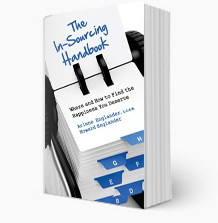In-Sourcing Blog
I’m doing the work, but when, if ever, is the job done?
Job description: Creating and maintaining strong boundary walls. Applicant is required to search the past, uncovering the source of hurtful events that scarred the psyche. Causes of shame and regret must be exposed. Fear of ‘not being good enough’ must be overcome.
Just about all of us arrive at adulthood with insidious slights of childhood still needing to be healed. For the more fortunate, the wound needs but a suture or two. But many of us have suffered damage that remains problematic for decades, and the healing process can be lengthy. Self-esteem and capacity for love and trust are not easily restored.
Thankfully, there are resources for helping us mend. Therapy and interventions with compassion as the soothing balm, can lead to healing. The goal is to reveal the experiences that wounded us when we were young, watching the scenes unfold as if in the audience of a cinema. Separated from the screen, we have perspective and can watch the characters acting in the roles they were selected to play when the film was cast. When the lights come on, we are in the present. We leave the theater and leave the movie behind.
It takes resolve because the process is not without pain. There is no anesthesia for confronting the harshness of the past. But that’s the work to be done; sifting through the debris, leaving the detritus behind, and emerging into the daylight clear-eyed about your life going forward.
What is thorny about the work is recognizing the various stages of the job, the plateaus, the two steps forward and one step back that mark our stumbling progress. The work does get done but never fully ends; maintenance is ongoing.
I rely on this analogy to help me stay the course. I put boundaries in place to mark the area where the flood zone begins. Without a strong levee there, the torrents of emotion will overflow and endanger my wellbeing. I build an embankment and it protects me from the smaller squalls but when the big storms come, it’s not high enough. I add specifications and requirements to the boundary wall and the storms are kept securely at bay. But then to my dismay, a so-called super storm overwhelms the bulwarks. I reassess the force of the fierce winds that create the tempests and add stipulations to the barricade, making it higher still. I’ve been safe from the floods ever since, but the boundary wall must be maintained. Leaks can occur over time, fissures formed. We continuously inspect the wall to keep it sound.
During the years of my own personal healing process I worked hard to put boundaries in place. The safeguards rescued me and continue to shield me when emotions are triggered. It’s not a full time job any longer. But occasionally there are times when the tides run fiercely, and the storm waters rise dangerously high. It’s a prompt for me to make sure the maladaptive behaviors and beliefs of the past have been fully dismantled and the barricades that keep me safe are securely rooted. The work goes on.

